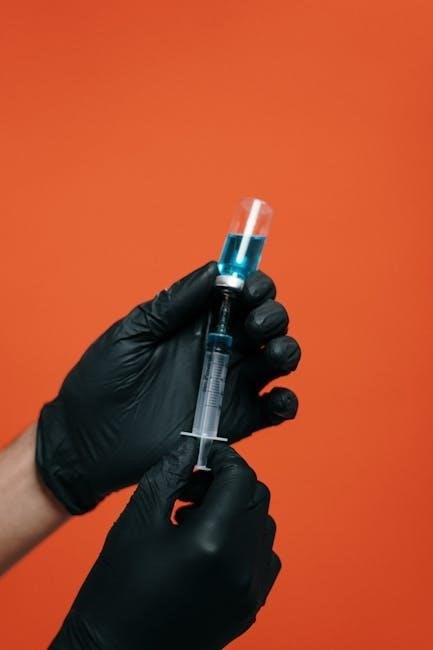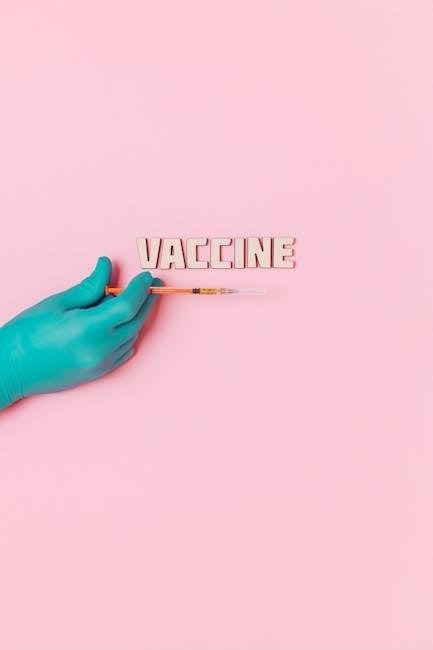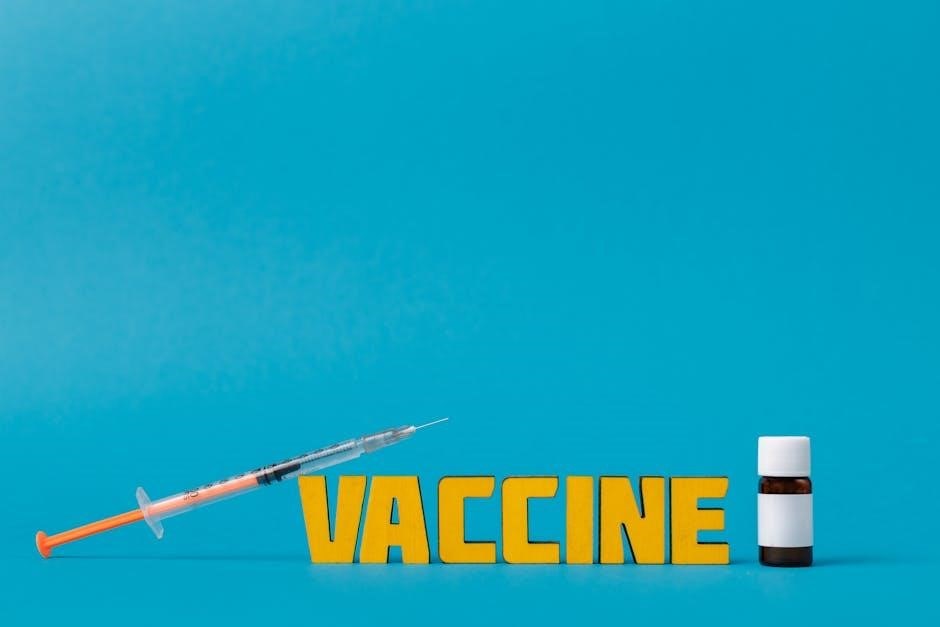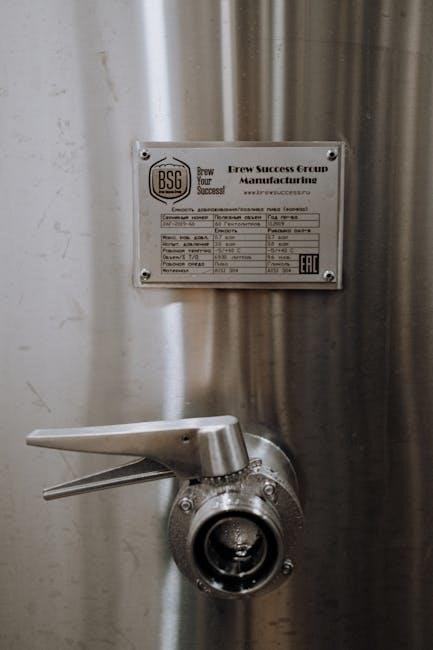Understanding the Flu Vaccine Exemption Process in New Jersey
In New Jersey, flu vaccine exemptions are available for medical or religious reasons. A medical exemption requires a letter from a healthcare provider, while religious exemptions involve submitting a formal request citing beliefs. The process ensures individuals can opt out of vaccination while adhering to state guidelines. Always consult official sources for the most accurate and updated information.
Overview of Flu Vaccine Exemptions in NJ
In New Jersey, flu vaccine exemptions are granted for medical or religious reasons. Medical exemptions require a letter from a healthcare provider, while religious exemptions involve submitting a formal request. The state allows individuals to opt out of flu vaccination under specific guidelines. Documentation, such as a Medical Exemption Form or a Religious Exemption Letter, must be provided. These forms are available on the New Jersey Department of Health website or through healthcare providers. The process ensures compliance with state laws while respecting individual beliefs and health conditions. Proper submission is essential for approval.
Types of Exemptions: Medical, Religious, and Philosophical
In New Jersey, flu vaccine exemptions are categorized into three types: medical, religious, and philosophical. Medical exemptions are granted based on health conditions that contraindicate vaccination, requiring a letter from a licensed healthcare provider. Religious exemptions involve formal requests citing beliefs that prohibit vaccination. While philosophical exemptions are less common, they may be considered on a case-by-case basis. Each type requires specific documentation, such as a Medical Exemption Form or a Religious Exemption Letter, ensuring adherence to state guidelines and individual rights. Proper documentation is crucial for approval.

Medical Exemption for Flu Vaccine
A medical exemption requires a letter from a licensed healthcare provider, stating the flu vaccine is contraindicated due to a medical condition. The Influenza Medical Exemption Form (PDF) is available in New Jersey for individuals with qualifying health conditions. Proper documentation is essential for approval.
Conditions That Qualify for a Medical Exemption
Certain medical conditions may qualify individuals for a flu vaccine exemption. These include severe allergic reactions to vaccine components, such as eggs or gelatin, and conditions like Guillain-Barré Syndrome. Chronic illnesses, such as heart or lung disease, or weakened immune systems due to HIV/AIDS or cancer, may also qualify. Additionally, individuals with a history of severe adverse reactions to previous flu vaccines or those with egg allergies requiring hospitalization are eligible. A healthcare provider must confirm these conditions in writing for exemption approval.
How to Obtain a Medical Exemption Letter
To obtain a medical exemption letter, individuals must consult a licensed healthcare provider. The provider evaluates medical history and confirms conditions that prevent flu vaccination. A signed letter on official letterhead is required, stating the medical reason for exemption. It must include the specific condition, vaccination contraindications, and exemption duration. The letter should be submitted to the appropriate authority, such as an employer or school. Official templates, like the Influenza Medical Exemption Form, can be found on New Jersey health department websites to ensure compliance with state requirements.
Religious Exemption for Flu Vaccine
A religious exemption requires a formal request citing specific beliefs opposing vaccination. Use official templates like the Religious Exemption Letter Template for submission. Ensure compliance with NJ guidelines.
Guidelines for Submitting a Religious Exemption Request
To submit a religious exemption request, individuals must provide a formal letter explaining their sincerely held religious beliefs opposing vaccination. Use official templates, such as the Religious Exemption Letter Template, to ensure compliance. The request should be submitted to the appropriate authority, such as an employer or school, and must be sincere and not based on philosophical objections. Include specific references to religious teachings and avoid general statements. Maintain confidentiality by requesting that the letter not be shared widely. Follow New Jersey’s guidelines for formatting and content to ensure acceptance. Employers or schools may require additional verification of the request’s sincerity.
Sample Religious Exemption Letter Template
[Your Name]
[Your Address]
[City, State, ZIP Code]
[Email Address]
[Phone Number]
[Date]
To [Recipient’s Name/Title],
[Recipient’s Address]
[City, State, ZIP Code]
Subject: Request for Religious Exemption from Flu Vaccination
Dear [Recipient’s Name],
I am writing to formally request a religious exemption from the flu vaccination requirement. My sincerely held religious beliefs prohibit me from receiving the flu vaccine. This decision is based on [specific religious teachings or principles]. I respectfully ask to be excused from this requirement while adhering to all other policies.
Sincerely,
[Your Name]
Legal Aspects of Flu Vaccine Exemptions in New Jersey
New Jersey’s flu vaccine exemption laws balance public health needs with individual rights, allowing medical and religious exemptions. Specific forms and employer policies must be followed.
State Laws and Regulations Regarding Exemptions
New Jersey state laws allow for medical and religious exemptions from flu vaccine requirements. Medical exemptions require a doctor’s certification of a contraindication, while religious exemptions must align with sincerely held beliefs. Employers and schools must adhere to these laws, ensuring compliance with public health guidelines while respecting individual rights. Specific forms, such as the Medical Exemption Form and Religious Exemption Request, are mandated for official submission. These regulations aim to balance personal freedoms with community health protections, as outlined by the NJ Department of Health.
Employer and School Policies on Exemptions
Employers and schools in New Jersey must comply with state laws regarding flu vaccine exemptions. Policies often require individuals to submit official documentation, such as a Medical Exemption Form or a Religious Exemption Request, to opt out of vaccination. These institutions typically verify the legitimacy of exemption requests and maintain records to ensure compliance. While respecting individual rights, employers and schools also prioritize workplace or classroom health standards, balancing public health goals with personal exemptions. Policies may vary, but they align with state regulations and public health guidelines.

Required Documentation for Flu Vaccine Exemption
Required documentation includes a completed Medical Exemption Form or Religious Exemption Request. Both must be submitted as official PDFs, obtained from the official NJ health department website.
Forms and Templates for Medical and Religious Exemptions
To apply for a flu vaccine exemption in New Jersey, specific forms and templates are required. For medical exemptions, a healthcare provider must complete and sign the official Medical Exemption Form (PDF), which outlines the medical reasons for the exemption. This form is available on the New Jersey Department of Health’s website. For religious exemptions, individuals must submit a formal request using the Religious Exemption Request Form (PDF), detailing their beliefs. Both forms must be downloaded from the official state health department website and submitted as per the provided guidelines. Proper completion ensures compliance with state regulations and facilitates a smooth approval process. These templates are designed to standardize the exemption process, ensuring clarity and consistency for both applicants and reviewing authorities. By using these official forms, individuals can confidently navigate the exemption process, knowing they meet all necessary requirements.
Where to Find Official PDF Templates in NJ
Official PDF templates for flu vaccine exemptions in New Jersey can be found on the New Jersey Department of Health (NJDOH) website. Visit the Vaccine Preventable Disease Program section to access the required forms. The Medical Exemption Form (PDF) and Religious Exemption Request Form (PDF) are available for download. Ensure you use the most recent versions to comply with state regulations. These templates are designed to streamline the exemption process and must be completed accurately to avoid delays. Always verify the source to ensure authenticity and compliance.

Implications of Declining the Flu Vaccine
Declining the flu vaccine may pose health risks, especially in high-risk settings. Workplace policies may require masks or restrict patient interactions. Proper documentation is essential for exemptions.
Health Risks and Workplace Implications
Declining the flu vaccine increases the risk of contracting and spreading influenza, potentially leading to severe health complications. In workplace settings, unvaccinated individuals may face restrictions, such as mandatory mask-wearing or limited patient interaction. High-risk environments, like healthcare facilities, often require vaccination or approved exemptions to ensure patient safety. Employers may enforce policies to mitigate flu transmission risks, emphasizing the importance of adhering to exemption guidelines or vaccination requirements to maintain a safe work environment and protect vulnerable populations.
Consequences of Refusing Vaccination in High-Risk Settings
In high-risk settings like healthcare facilities, refusing flu vaccination can lead to serious consequences. Unvaccinated individuals may face mandatory mask-wearing, restricted patient interaction, or reassignment. Employers may enforce stricter policies to protect vulnerable populations. Additionally, the risk of transmitting influenza increases, potentially endangering immunocompromised individuals. Refusal without an approved exemption can result in disciplinary actions or job restrictions. The consequences underscore the importance of adhering to vaccination requirements or obtaining a valid medical or religious exemption to maintain workplace and public health safety.

Frequently Asked Questions About Flu Vaccine Exemptions
What qualifies for a flu vaccine exemption? How do I submit a request? What documents are required? Where can I find official forms? Answers to common inquiries.
Common Questions and Answers for Applicants
Applicants often ask about eligibility criteria for exemptions, required documentation, and processing times. Medical exemptions need a provider’s letter, while religious exemptions require a formal statement. Applicants must submit completed forms to relevant authorities. Processing times vary, but timely submission is advised. Consequences of refusing vaccination in high-risk settings may include mask-wearing or restricted access. Applicants should ensure all documents are notarized or signed as required. For detailed guidance, refer to official NJ health department resources or legal advisories.
What to Expect After Submitting an Exemption Request
After submitting a flu vaccine exemption request, applicants should expect a review process by the relevant authority, such as an employer or school. The request will be evaluated based on the provided documentation and guidelines. If approved, applicants will receive an official exemption notification. If denied, they may need to follow an appeals process. Some organizations may require additional steps, such as meetings or further documentation. Applicants should also be prepared for potential follow-up questions or requests for clarification. Understanding the timeline and requirements is essential for a smooth process.

























































